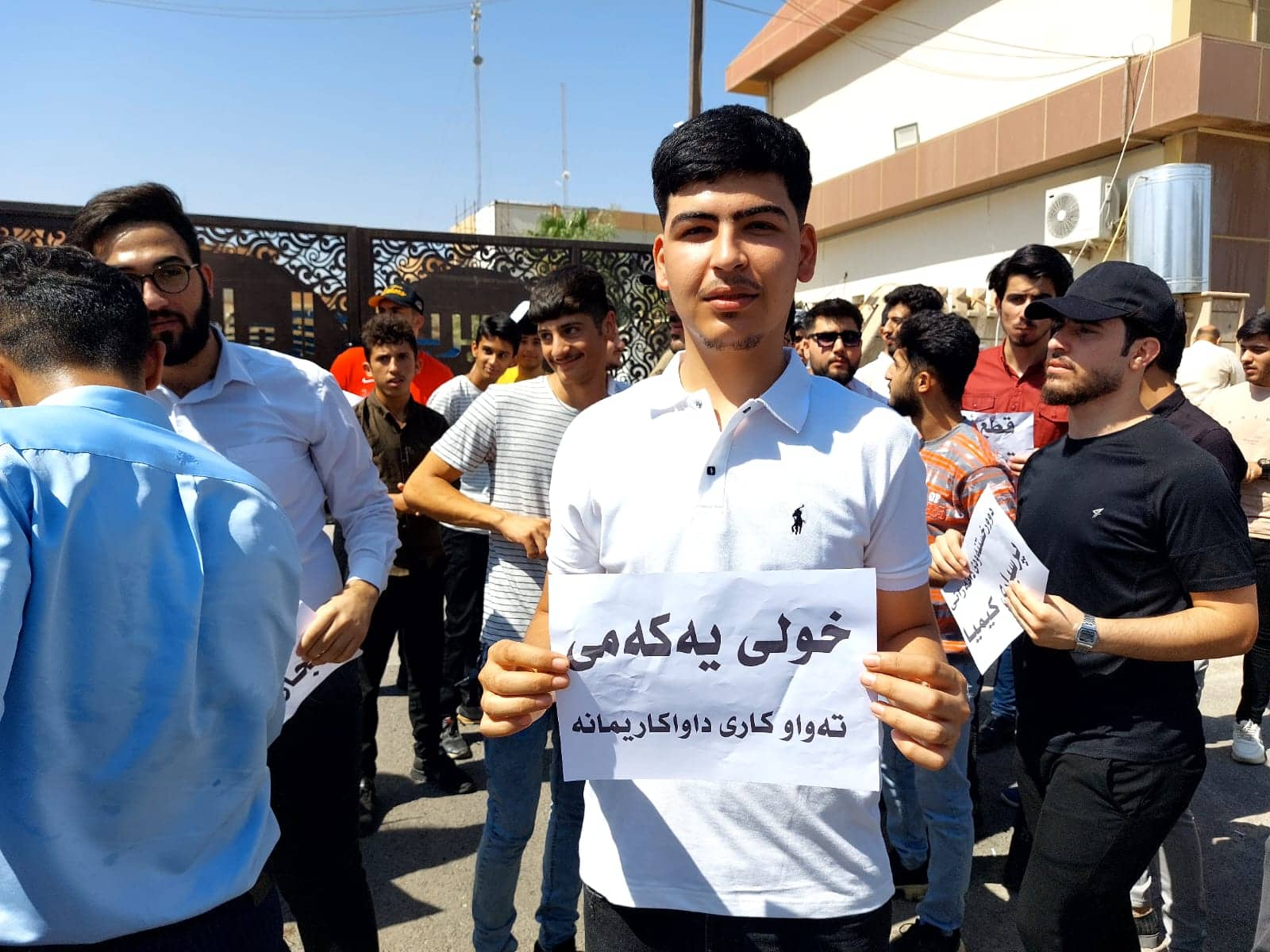The Iraqi Ministry of Education will not repeat the chemistry examination for grade twelve pf Kurdish high school in Kirkuk, giving each student only six marks, after a series of protests.
Kurdish students and teachers in Kirkuk have protested more than once this month and gathered in front of the Directorate General of Education to demand the cancellation of the results of the chemistry examination for class six of high schools studying in Kurdish language.
According to a letter issued by the Standing Committee of the General Examinations of the Iraqi Ministry of Education, the applications of Kurdish students will not be accepted.
In the letter sent to the Kirkuk Education Directorate, the committee said that the fifth question of the chemistry examination was a scientific and difficult question, which has six marks, so only for that item, each student will receive full six marks.
The chemistry examination was held on August 2, 2022. About half or more of the students left the examination in each examination hall in Kirkuk on the grounds of “external and omitted” questions.
On August 2nd, about half or more of the students left the examination halls in Kirkuk due to the “external and abandoned” questions in the final ministerial exams of chemistry, sources told KirkukNow
The problem occurred in the examination halls of grade twelve during chemistry test for Kurdish schools which caused panic among students, half of them forced to leave exam halls. Later, some of the students and their relatives gathered in front of the Kirkuk citadel calling for repetition of the exam.
The successive wars, mismanagement and corruption have affected education sector all over Iraq. The schools teaching in Arabic language, the main language of the country, are funded by the federal government in Baghdad while those teaching in Kurdish are supported by the Kurdistan Regional Government KRG.
The deterioration of public services and sectors have pushed investors to launch private schools, local and international, which was warmly welcomed by middle and high classes all over Iraq, in particular the Kurdistan region of Iraq KRI.
Kirkuk, August 2022: Kurdish teachers and students complain Chemistry exam included questions beyond curriculum, asking for repetition.
However, the Ministry of Education says in the letter that after investigation in the presence of experts revealed that "all the questions of chemistry for Kurdish education were part of the curriculum," denying that any external questions were included.
On August 5, after student demonstrations, the Ministry of Education sent a committee of inquiry to Kirkuk.
Parwin Fatih, director of the Kurdish Education Supervision Unit in Kirkuk, told KirkukNow: “The questions are from Baghdad and we were not responsible for it.”
"We believe that this step (the decision of the Ministry of Education) will not regain all their rights, but what we have done as pressure so that the students do not become disappointed and leave the case empty-handed," Fatih said.
The examination committee in the Ministry of Education admitted in its letter that the questions of chemistry were difficult and did not take into account the educational conditions of the students.
In Kirkuk, Turkmen students also protested Physics examination, saying questions were "difficult", asking for extra marks or exams to be repeated, but the Ministry of Education has not responded to their demands.
Early June, The Iraqi ministry of education has ordered installation of surveillance cameras at the offices of public-school principals to monitor abnormal moves such as loss of documents, leakage of exam questions, or any other problems related to the treatment of school administration with students and their relatives.
The decision coincided with the leakage of the questions of the grade nine’s final national examination and its circulation on social media networks, especially mathematics questions, pushing the examination supervision committee of the MOE postponed the examinations.
Education in Iraq used to be one of the best education systems in the region yet decades of conflict and under-investment in Iraq have destroyed the system. Iraq’s national budget has in the past years allocated less than 6% of its national budget to the education sector, placing Iraq at the bottom of ranking among Middle East countries.
Iraq’s infrastructure is in ruins in many parts of the country; one in every two schools is damaged and needs rehabilitation. A number of schools operate in multiple shifts in an attempt to accommodate as many students as possible, squeezing the little learning time that children have, a 2016 report by the UNICEF about education in Iraq.





